eu-citizen.science blog
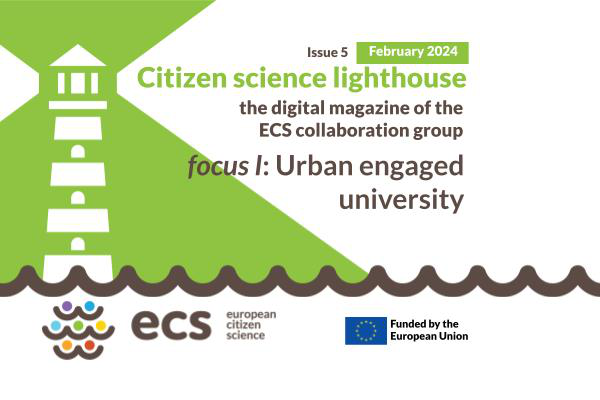
Floor Keersmaekers, Jan. 31, 2024, 10:34 a.m.
Urban engaged university
Get to know the Citizen Science Contact Point (CSCP) launched in October 2022 by the Research Council of the Vrije Universiteit Brussel. As the name suggests, the research community at Vrije Universiteit Brussel can address the Citizen Science Contact Point for all things citizen science. But the larger aim, as stated in the policy plans, is to stimulate both the quality and the quantity of funded Vrije Universiteit Brussel projects applying a citizen science approach, and to promote a culture in which citizen science is considered as a fully-fledged research method.
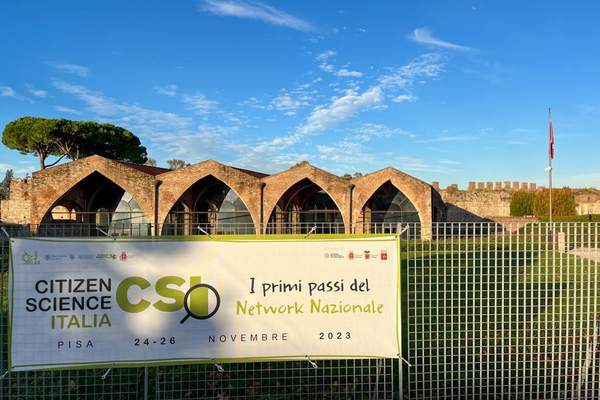
Simona Cerrato Jan. 23, 2024, 1:26 p.m.
Behind the Scenes of the First National Conference of Citizen Science Italia
From November 24th to 26th, the first national conference of the newly established association Citizen Science Italia took place in Pisa. It was a significant event held in the charming setting of the Arsenali repubblicani, a venue that bears witness to the city's long maritime history and its openness to new horizons. We discussed the conference with Andrea Sforzi, Gaia Agnello, and Chiara Vitillo, the organisers of the event and the driving force behind the association. Tigre, Gaia's cat, joined us, never missing a video call when it comes to citizen science.
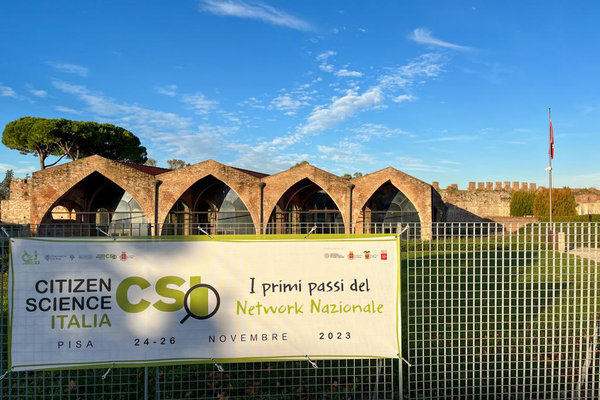
Simona Cerrato Jan. 23, 2024, 1:15 p.m.
Dietro le quinte del primo Convegno nazionale di Citizen Science Italia
Dal 24 al 26 novembre si è tenuto a Pisa il primo Convegno nazionale della neonata associazione Citizen Science Italia. È stato un evento importante nella suggestiva cornice degli Arsenali repubblicani, a Pisa che testimoniano la lunga storia marinara della città e la sua apertura verso nuovi orizzonti. Ne parliamo con Andrea Sforzi, Gaia Agnello e Chiara Vitillo, che hanno organizzato l’evento e sono lo spirito dell’associazione. Ci ha accompagnato Tigre, la gatta di Gaia, che non perde nemmeno una videochiamata quando si tratta di citizen science.
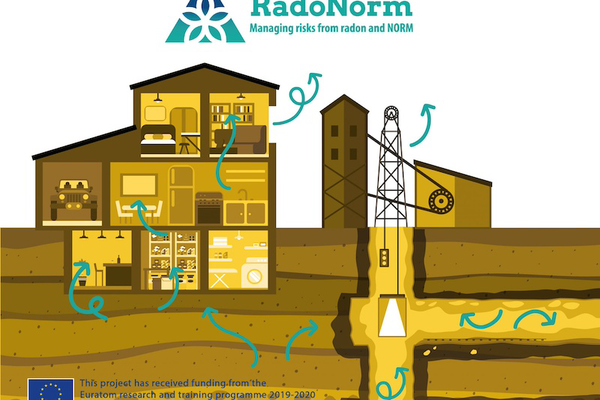
Meritxell Martell, Dec. 5, 2023, 9:06 a.m.
European Radon Day marked with citizen science event
Radon is a radioactive gas that is odourless, colourless and tasteless and poses a serious risk of lung cancer, a risk enhanced by exposure to air pollution and smoking. Citizen science can contribute to investigate the scientific, technical and societal risks from radon exposure situations, and support good management of these materials and effective radiation protection.
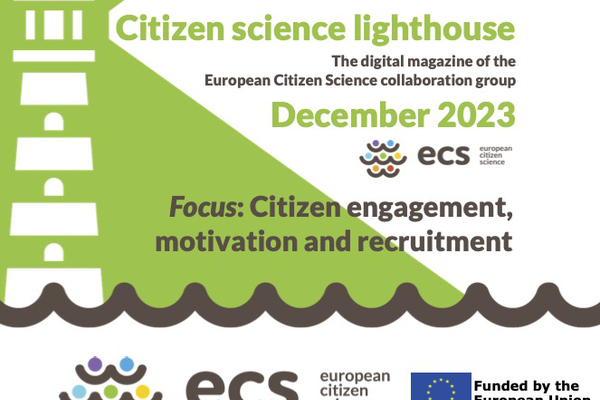
Meritxell Martell, Dec. 1, 2023, 10:06 a.m.
Citizen engagement, motivation and recruitment
Citizen scientists are undoubtedly the vital essence of any citizen science project. Therefore, keeping an eye on what interests and motivates the citizens, and what they expect from their involvement in the project, is crucial to ensure not only the success but also the sustained longevity of citizen science initiatives. Yet, maintaining consistent engagement and ensuring citizens remain highly motivated throughout can pose a challenge for many citizen science initiatives.
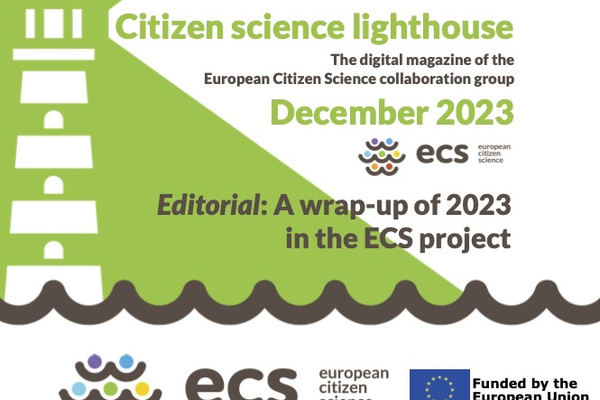
Claudia Fabó Cartas, Dec. 1, 2023, 9:18 a.m.
A wrap-up of 2023 in the ECS project
Whether you joined our citizen science journey from the beginning or came aboard the Citizen science lighthouse later on, we hope that you are enjoying the reads so far. As we bid farewell to the fourth and last issue of this year’s magazine, we are thrilled to share a wrap-up of some of the ECS project’s 2023 activities that might be of interest to you.

Stefania Oikonomou, Nov. 27, 2023, 8:28 a.m.
Citizen science in conflict zones for community empowerment
Conflicts pose a threat to the natural heritage and biodiversity of affected territories. Practising citizen science amid disruptive socio-environmental conditions is challenging but worth doing with and for communities’ post-war recovery.
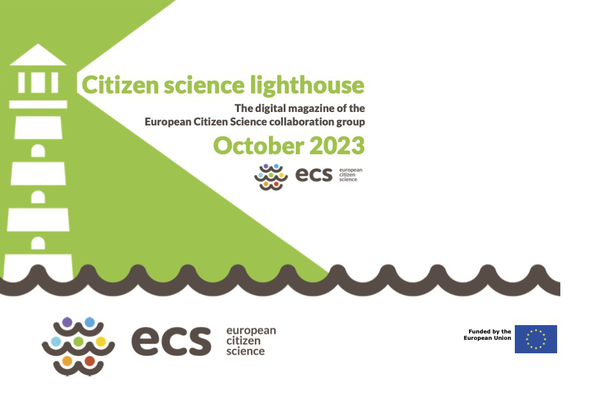
Anna Berti Suman Oct. 2, 2023, 6 a.m.
FOCUS: Citizen science and the law: potential applications
Civic environmental monitoring can offer valuable evidence for environmental law enforcement, both in judicial arenas and in alternative dispute resolution e.g., through mediation techniques.
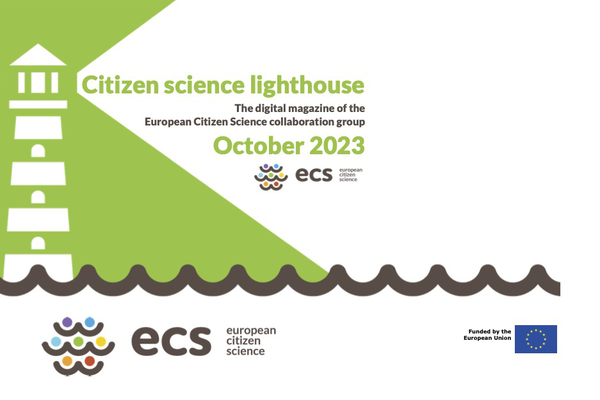
Annelies Duerinckx, Oct. 2, 2023, 6 a.m.
FOCUS: Legal challenges for citizen science initiatives: Stories from the field
What are the legal hurdles faced by citizen science projects? This is a particularly challenging topic and there is an urgent need for clearer guidance. Three topics are presented here: Navigating rules on volunteering, Privacy proof citizen science, Intellectual property rights.
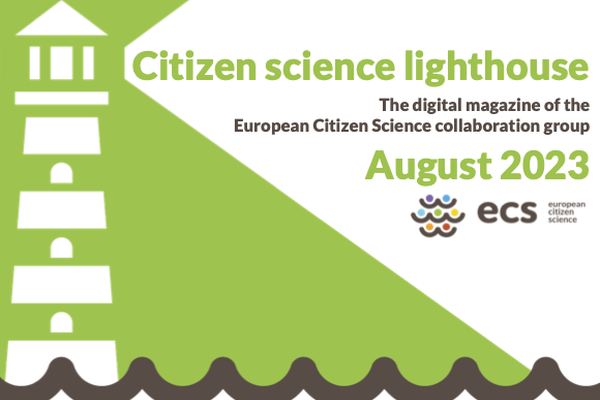
Anna Sanchez Vidal July 25, 2023, 12:38 p.m.
FOCUS Sharing results with citizens
It is a fundamental aspect, which can sometimes turn into a challenge, to share the results with citizens, that is, with anyone who participates and contributes to a citizen science project. Many tools available today to develop, implement and evaluate citizen science initiatives address this aspect. At their core, the effective sharing of research results plays a pivotal role in cultivating societal trust in the scientific community. To achieve this, it is essential to guide and provide citizens with well-informed resources that enable them to understand and interpret the data.
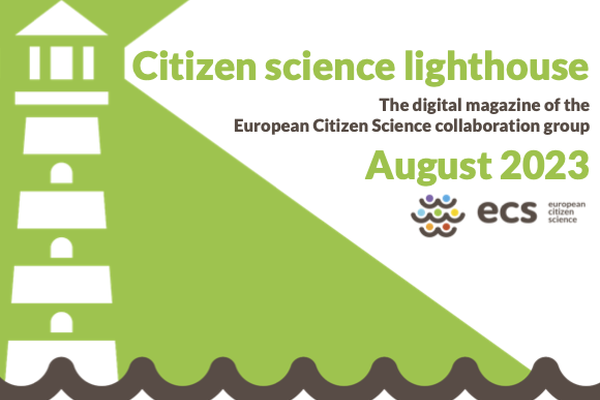
Simona Cerrato July 25, 2023, 12:07 p.m.
Editorial: Our house is on fire
Europe is hit by a wave of extreme weather events, the evident signs of the climate changes.There are no simple solutions, however citizen science can be an effective approach, because no solution can do without the contribution of all, and it is precisely on this participatory principle that citizen science is based.
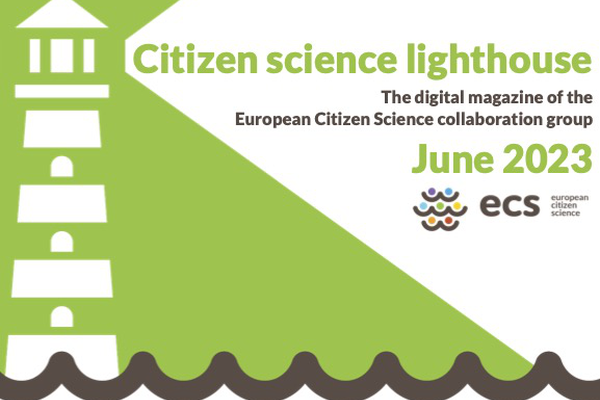
ECS project June 1, 2023, noon
Welcome to the Citizen Science Lighthouse
Welcome to the first issue of the Citizen Science Lighthouse, the newsletter of the ECS Collaboration Group. Whether you are curious to find out more about citizen science or are already involved in it as a citizen scientist or citizen science professional, you are in the right place.